From sex scandals that reached the president’s office to political violence by increasingly disaffected citizens who have been hit by the cost of living in the nation, it is no wonder that French citizens have become largely disillusioned with the nation. .
Recent survey data revealed that three in four French citizens believe the nation is in decline, and a group of social media influencers have set out to change that by promoting the country’s once internationally praised cuisine and culture.
With hundreds of thousands of followers on social media platforms, they have tried to fight the growing anti-French unrest that has spread across the country. And at least for now, the movement appears to be working, both at home and abroad.
Pierre-Alexandre de Boisse, an influencer and entrepreneur who quit a lucrative financial job to create and run Le Canon Français, a company that organizes traditional banquets throughout France, said his company’s banquets are a hit with locals and tourists.
‘We have had British, Swiss, Belgian and Spanish guests. It’s about enjoying the best that France has to offer, its art de vivre. Everyone is welcome,’ he said. The times.
French social media influencers have set out to change their country’s national image by promoting the nation’s once internationally praised cuisine and culture.
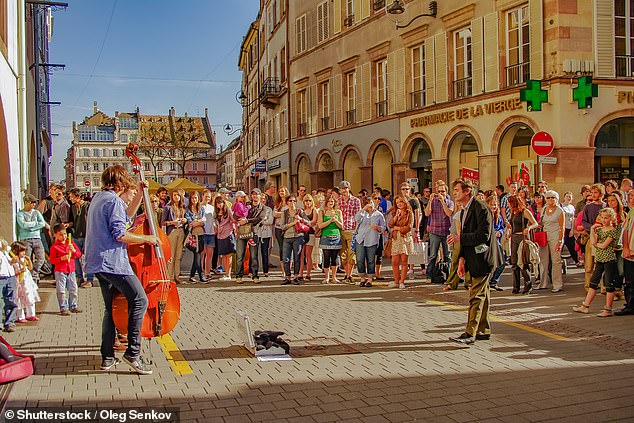
Street musicians perform in Strasbourg, France (File image)
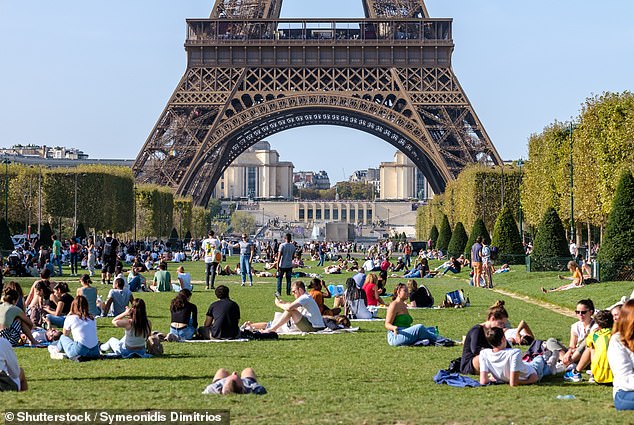
Panoramic view of the Champ de Mars in Paris (File image)
The influencer, whose company has almost 200,000 followers on Instagram, said that despite political criticism from both the left and the right, all he wants to do is promote French cuisine.
Some leftists don’t like us because we eat too much meat and are old-school French, but the people who attend our events are mostly in their thirties.
“Some people assume that we are right-wing because we choose French food and wines and promote the love of our terroir, our land, but we are not at all interested in getting involved in politics. We do not want any affiliation with any political party.”
Simon Vasseur, another influencer, believes that valuing architectural heritage is key to fighting social unrest.
He said: “Sometimes people are completely isolated from their land and their traditions, and they wonder who they are and where they come from.”
The influencer, who has more than 174,000 followers on Instagram, stated that he wants to “prove” that French traditions still have a place in modern society.
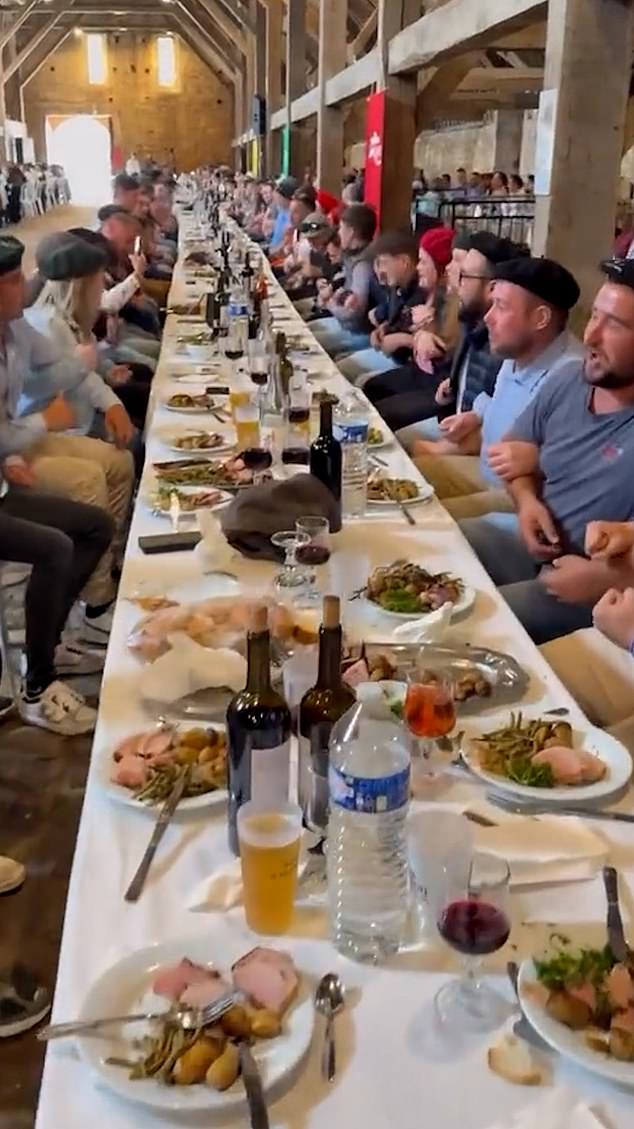
Pierre-Alexandre de Boisse quit a lucrative financial job to create and run Le Canon Français, a company that organizes traditional banquets throughout France (pictured)

France remains the most visited country in the world, with more than 80 million tourists in 2022 alone.

Simon Vasseur, another influencer, believes that valuing architectural heritage is key to combating social unrest (In the photo)
He believes this is working: ‘There is a back-to-the-roots dynamic. Parallel to the bling-bling culture of mainstream influencers, young people are discovering that Paris is as cool as Dubai, and Aveyron (in the south of France) is as cool as Miami.’
France remains the most visited country in the world, with more than 80 million tourists in 2022 alone, while it will welcome more than 100 million in 2023, according to estimates.
However, while France is a large nation, government figures show that 80 percent of its annual tourism is concentrated in just 20 percent of the country.
It’s no surprise, then, that like its other Mediterranean neighbors, officials have been looking for ways to limit tourism, make it more sustainable and encourage visitors to discover parts of France that are less known.
In June last year, Tourism Minister Olivia Gregoire revealed plans to regulate visitor flows at some of France’s most popular sites.
This will include a tourist observatory to measure flows and identify overloads.
“France is the world’s biggest tourist destination, but we have a serious lack of data to help manage crowds,” the government has said in the past.
He said France needed to better manage peak season influxes that threatened “the environment, the quality of life of locals and the experiences of its visitors.”
As pandemic restrictions were relaxed and lifted, many of the most famous French sites, such as the Mont-Saint-Michel Abbey in Normandy, said they were being overwhelmed by the sheer number of visitors.
A famous town and nearby beach, Etretat, is home to 1,200 people, but saw an increase of 10,000 daily visits after it was featured in the Netflix detective series ‘Lupin’.
“This massive influx ends up trampling and eroding the cliffs and putting the beach cliffs in danger,” Shai Mallet, co-director of the area’s neighborhood association, told AFP.
Limits have already been put in place elsewhere, with officials limiting daily visits to the British island of Bréhat to 4,700 in peak summer months.
And officials at the Calanques national park, near Marseille in southern France, introduced a reservation system during the Covid-19 pandemic that they decided to maintain for five more years.
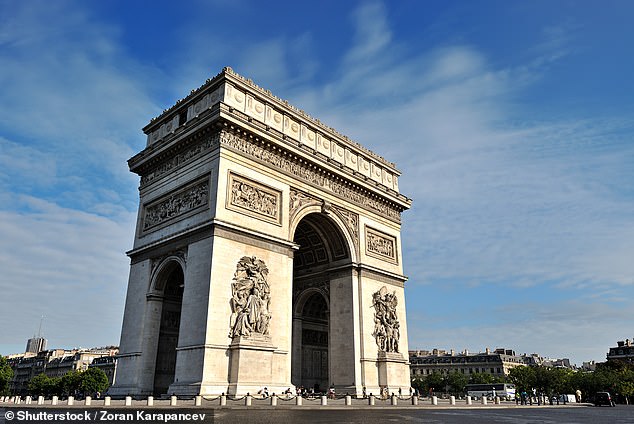
The Arc de Triomphe in Paris, France (File Image)
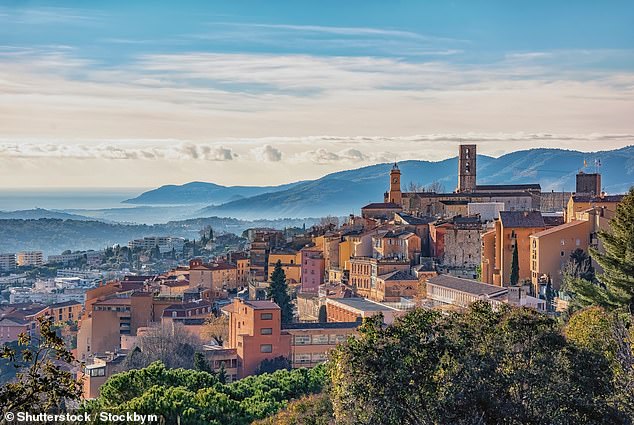
The city of Grasse on the French Riviera (File image)
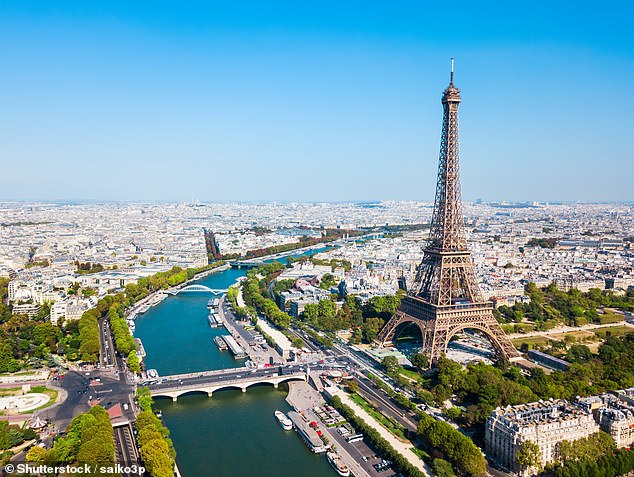
The French capital Paris is grappling with a housing shortage, something many attribute to short-term rentals (File Image)
The park, which can be reached by an hour-long walk, now admits only 400 people a day, down from 2,500 in the past.
Like many cities in Europe, the French capital Paris is also dealing with a housing shortage, something many attribute to short-term rentals.
More than 36 million people are believed to have visited the city in 2023 alone.
One suggestion put forward by officials is to ban key boxes from outside buildings to discourage people from listing their homes on Airbnb.
Six French cities – including Nice, Lille and Annecy – already have such rules.
In Nice, a local artist set up giant rat traps – with a giant ice cream as bait – “to eradicate and eliminate the tourist plague.” FranceInfo reported then: “To curb mass tourism, street artist TooLate offers a radical solution.”

